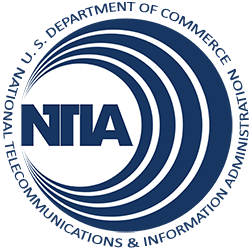The Appalachian Valley Fiber Network (AVFN) is a public-private partnership designed to bring a middle-mile fiber network to 12 counties across the lower Appalachian Valley in northwestern Georgia and eastern Alabama. Most of the community anchor institutions located in the area report either inadequate access to broadband or a lack of affordable, high-capacity service from existing providers. The project proposes constructing 182 new miles of fiber and leasing 287 miles of dark fiber to complement existing resources held by the two service providers who have collaborated to form AVFN.
Georgia

| Grantee | Total Award | Type |
|---|---|---|
| Appalachian Valley Fiber Network | $21,286,914 | Infrastructure |
| Columbia County Georgia Information Technology Department | $13,483,004 | Infrastructure |
| Communication Service for the Deaf, Inc. | $14,988,657 | Sustainable Adoption |
| Georgia Partnership for TeleHealth, Inc. | $2,462,975 | Sustainable Adoption |
| Georgia Technology Authority | $5,229,940 | Broadband Data & Development |
| Level 3 EON, LLC | $1,427,310 | Infrastructure |
| North Georgia Network Cooperative, Inc. | $33,490,537 | Infrastructure |
| One Economy Corporation | $28,519,482 | Sustainable Adoption |
| Professional Resources Management of Rabun, LLC | $1,097,091 | Public Computer Centers |
| University Corporation for Advanced Internet Development | $62,540,162 | Infrastructure |
The Columbia County Community Broadband Network plans to build a 220-mile, county-wide fiber middle mile network to connect nearly 150 community anchor institutions and enhance health care, public safety, and government services throughout this eastern Georgia county. Anchor institutions expected to be connected at broadband speeds of 100 Mbps to 10 Gbps include K-12 schools, fire and emergency facilities, public libraries, Augusta Technical College, and the Columbia County Health Department. The project also plans to facilitate the creation of a high-capacity data center at the Medical College of Georgia, support a sophisticated county-wide traffic and water control system, and construct five wireless towers to enhance public safety communications as well as improve wireless communications capabilities throughout the region.
Broadband’s ability to expand educational and employment opportunities is especially meaningful for Americans who are deaf or hard of hearing, a community that faces unique challenges in education and that suffers from a rate of unemployment much higher than the national average. Communication Service for the Deaf, Inc. (CSD) intends to expand broadband adoption among people who are deaf and hard of hearing and provide them with online tools to more fully participate in the digital economy. The project proposes to employ a combination of discounted broadband service and specialized computers, technology training from an online state-of-the art support center customized to the community’s needs, public access to videophones at anchor institutions from coast to coast, and a nationwide outreach initiative. Thousands will gain online access to all the Internet has to offer, including sign language interpreters, captioned video services, and other content and functionalities designed especially to advance their educational, employment, and healthcare interests.
To address poor health and lack of high quality health care in rural Georgia communities, Georgia Partnership for TeleHealth is proposing a training and outreach program for residents and healthcare providers to improve health and healthcare delivery in the state’s 91 designated “counties of persistent poverty.” Leveraging the strengths of state government agencies, the private sector, and educational and nonprofit organizations, the project proposes targeted outreach to economically vulnerable populations including African American and Hispanic communities, low-income residents, senior citizens, and at-risk youth to address poor health and lack of high quality health care.
The project plans to connect community-serving institutions, like hospitals, schools, public health departments, and physicians’ offices by expanding the applicant’s current open access telehealth network to 67 additional community anchor sites. The partners plan to raise awareness of the benefits of broadband for healthcare through several outreach campaigns and training for rural physicians, non-physician practitioners, and school nurses.
Project Components
State Broadband Capacity Building:
The Georgia Technology Authority will provide consistent leadership for broadband development in the State of Georgia. Staff will coordinate state-level broadband activities, collaborate with regional and local governments, evaluate the broadband needs of the state and identify resources to meet those needs.
Local Regional Technology Planning Teams:
This funding will support development of the Georgia Broadband Center of Excellence, a central hub that will design, develop and provide assistance for mapping data to local communities; utilize the expertise of local officials to craft a technology plan for each of the 12 regional development commissions.
Data Collection, Integration, and Validation:
This project was originally funded for broadband planning activities and two years of data collection. In September of 2010, this project was amended to extend data collection activities for an additional three years and to identify and implement best practices.
The Expanding Broadband Access Across Georgia project proposes to build four new access points on Level 3’s existing broadband network to enable last mile providers to offer affordable high-speed services to underserved areas. The additional points of interconnection will offer broadband speeds between 50 Mbps and 10 Gbps on an open and nondiscriminatory basis to last mile Internet service providers. Similar to on-ramps to the interstate highway system, these points of interconnection will enable last mile providers to transport data to the Internet backbone and provide affordable service to anchor institutions, homes, and businesses. The project could enhance broadband capabilities for as many as 198,000 households, 13,000 businesses, and 190 anchor institutions, including schools, government agencies, and healthcare providers.
The North Georgia Network project intends to enable a new technology-based economy in North Georgia by deploying a 260-mile regional fiber-optic ring to deliver gigabit broadband speeds, reliability, affordability, and abundant interconnection points for last mile service. The project intends to improve broadband service in underserved areas and stimulate economic growth and job creation in eight counties in the North Georgia foothills. The North Georgia Network project would make broadband more readily available to 42,000 households, 9,200 businesses, and 367 community anchor institutions.
The 21st Century Information and Support Ecosystem project proposes to implement a comprehensive program of computer training, wireless Internet access, broadband awareness marketing, and online content and applications to residents of 159 affordable and public housing developments and low-income communities in 50 cities and towns across 31 states and the District of Columbia. The project plans to implement four principal programs: training 2,500 youth to become “Digital Connectors” who will then provide digital literacy training to others in their communities; deploying localized broadband networks in public housing developments; developing online content and applications aimed at low-income, low-literacy audiences.
Struggling with rates of poverty, unemployment, high-school dropouts, disability, and persons lacking healthcare more acute than the national averages, Rabun County, Georgia would benefit greatly from the kind of enhanced services made possible by high-speed broadband access. The county’s challenging terrain makes it difficult to deploy broadband services to many households and businesses. Professional Resources Management of Rabun proposes to deploy two public computer centers in Rabun County to improve workforce development, education, and healthcare services.
Project partner North Georgia Technical College will offer online courses to users at each computer center in multiple disciplines, including accounting, automotive maintenance, business management, health sciences, and other skilled trades. The computer center at the Mountain Lakes medical facility plans to offer classes in health education to the public, while launching a telehealth initiative via videoconferencing to allow healthcare providers to interact and share information with peers statewide.
As part of a longstanding project to connect essential community anchor institutions across the country, and facilitate closer collaboration and long-term benefits for education, research, healthcare, public safety, and government services, the University Corporation for Advanced Internet Development (UCAID) proposes a comprehensive 50-state network benefitting approximately 121,000 community anchors. The project proposes a large-scale, public-private partnership to interconnect more than 30 existing research and education networks, creating a dedicated 100-200 Gbps nationwide fiber backbone with 3.2 terabits per second (TBps) total capacity that would enable advanced networking features such as IPv6 and video multicasting. The project plans to connect community anchors across all disciplines into virtual communities with shared goals and objectives, including colleges, universities, libraries, major veterans and other health care facilities, and public safety entities, with additional benefits to tribes, vulnerable populations, and government entities.
